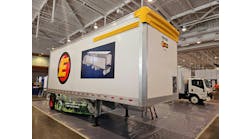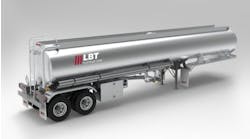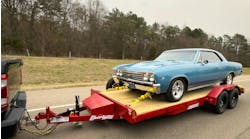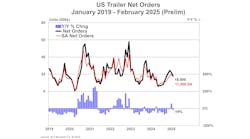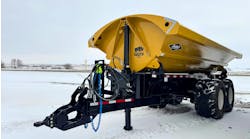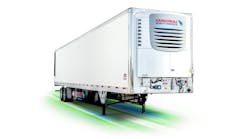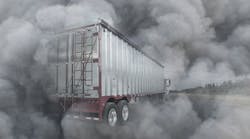Is a tractor-trailer a sandwich, or bread and peanut butter?
That simple question is at the heart of the Truck Trailer Manufacturers Association’s June 2 filing with the US Court of Appeals for the DC Circuit. The filing is the latest in TTMA’s petition to remove trailers from 2016 federal emissions regulations.
At issue is the “Greenhouse Gas Emissions and Fuel Efficiency Standards for Medium- and Heavy-Duty Engines and Vehicles—Phase 2”, a joint effort by the US Environmental Protection Agency and the National Highway Traffic Safety Administration.
TTMA filed the petition to review in late 2016, but it sat idle pending EPA’s promise to review the regulation, known as GHG 2. Agency inaction prompted TTMA to move forward, and the court removed the petition from obeyance, setting a briefing schedule in late December last year. TTMA filed it’s brief Feb. 10; EPA and NHTSA answered April 21, followed May 12 by intervenor briefs opposing the TTMA petition from, among others, the California Air Resources Board, the Sierra Club, and a number of states.
The June 2 filing is TTMA’s answer to the government and intervenor briefs. In it, TTMA argues that it’s “nonsense” for EPA and NHTSA to regulate trailers under federal fuel economy and emissions standards, calling the agencies arguments “contorted efforts to transform a statute regulating manufacturers of ‘self-propelled’ vehicles into a statute regulating manufacturers of products that must be propelled by something else.”
EPA and NHTSA, however, contend that TTMA’s arguments “merely reflect ambiguity in the governing statutes,” giving the agencies discretion to fill in the gaps in the law, under a precedent known as Chevron.
And, since Congress doesn’t expressly prohibit the regulation of trailers under the Clean Air Act, EPA has the authority to declare that a tractor-trailer combination is a “self-propelled” vehicle.
“A tractor-trailer cannot accomplish its intended purpose of transporting freight without the trailer,” EPA argues.
But, TTMA counters, “the fact that peanut butter may be combined with bread to form a sandwich does not mean the whole sandwich is ‘bread.’”
“EPA’s argument that a product that cannot propel itself nonetheless becomes ‘self-propelled’ by virtue of being attached to and propelled by something else makes a mockery of the statutory language,” the filing states.
TTMA also notes that many contrasting statutes using the phrase “self-propelled or drawn by mechanical power,” confirming the “obvious” point.
Oral arguments in the case are expected to be held in mid- to late summer, with a court decision coming in the fall.
